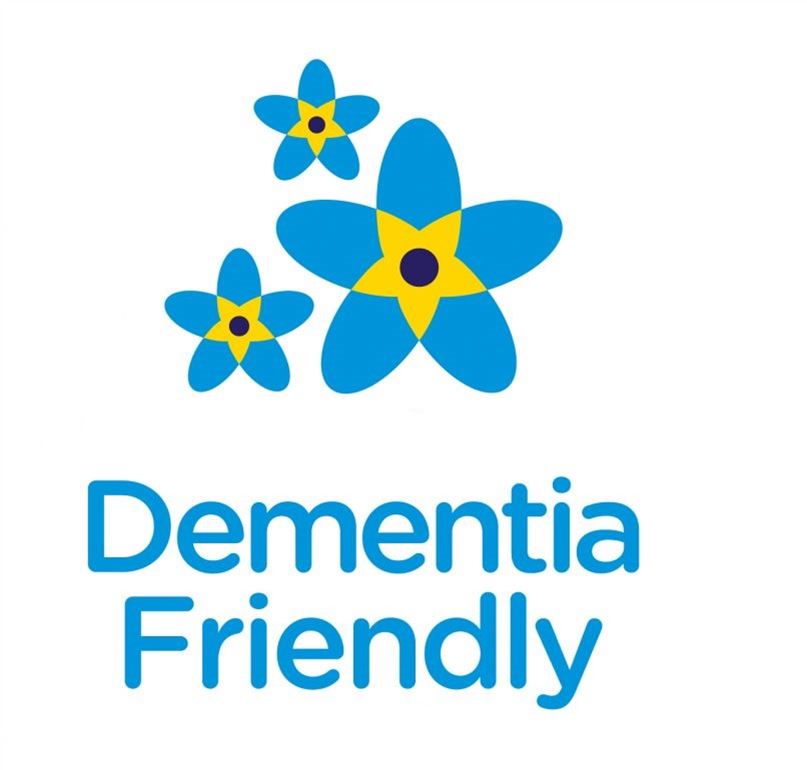Dementia Support
Dementia
The word 'dementia' describes a set of symptoms that over time can affect memory, problem-solving, language and behaviour. Alzheimer's disease is the most common type of dementia.
Introduction
This practice is working to become dementia friendly and has committed to work with the Alzheimer’s Society to make improvements, where appropriate and possible, to their systems, culture, diagnosis and care and physical environment.
Dementia wristband
The wristbands contain a secure, programmable chip that can be written and scanned by an Android or iOS enabled phone, with key information about the wearer and their next of kin, so if they go missing their relatives and carers can be quickly notified and reunited.
For more information please visit
https://www.lincs.police.uk/.../sep.../dementia-wristbands/
Alzheimer’s Society is there for anyone affected by dementia. See below for ways that you can access expert information and support:
- Visit their website www.alzheimers.org.uk
- Call the National Dementia Support Line on 0333 150 3456
Support line opening hours
- Monday to Wednesday: 9am – 8pm
- Thursday and Friday: 9am – 5pm
- Saturday and Sunday: 10am – 4pm
More call options
For people with speech or hearing difficulties
If you have a textphone or an adapted computer, you can use Relay UK to call our English-speaking Dementia Support Line on 18001 0333 150 3456.
You can also use SignVideo to get easy access to a BSL interpreter, enabling you can talk to a Dementia Advisor via your phone, tablet or laptop.
View more accessible contact options
For non-English speakers
For Welsh language support call 03300 947 400.
For languages other than English and Welsh, we can arrange a language translation service. Call us on 0333 150 3456 and say the English word for the language you would like to use. We will then arrange for an interpreter to call back.
- Sign up to the Dementia Support Forum an online community for anyone affected by dementia forum.alzheimers.org.uk
- Lincolnshire Dementia Support Service is available by calling 01522 692681, emailing lincoln.enquiries@alzheimers.org.uk or ask your health professional (Doctor, Nurse, Associate Practitioner, Occupational Therapist) to refer you so that you can access information and practical guidance from one of Alzheimer’s Society’s support workers either face to face, over the phone or in writing.
- If you are caring for someone with dementia it is important for you to have access to information and support as well. You can access the Dementia Support Service (see above). Please ensure the Practice knows you are a Carer, see the Carers section of the Practice website or ask to speak to the Carer’s Champion.
Local groups and activities (Alzheimer’s Society led where indicated)
- Alzheimer’s Society Grantham Dementia café, Belton Park Golf Club, Belton Park, Grantham NG31 9SH, Second Thursday of every month, 10am–12pm. Please contact the office to discuss attending: 01522 692681
Useful information about dementia
If you are worried about your memory or someone else’s memory the first thing to do is make an appointment with your GP. There are many reasons why someone may be showing signs similar to dementia, Dementia is not just about losing your memory. The word 'dementia' describes a set of symptoms that may include memory loss but can also affect the way you think, speak, perceive things, feel and behave.
https://www.alzheimers.org.uk/about-dementia/types-dementia/what-is-dementia
Alzheimer’s Society Symptoms Checklist
A checklist to help you make a note of symptoms before you talk to your GP:
Young-Onset Dementia
Young onset dementia is any form of dementia that occurs in people under the age of 65
https://www.alzheimers.org.uk/about-dementia/types-dementia/what-causes-young-onset-dementia
Dementia is not a natural part of ageing.
Not everyone who grows old will develop dementia.
One in three people born in the UK today will develop dementia in their lifetime.
It doesn’t just affect older people.
Around one in 20 people with dementia are younger than 65.
Dementia is caused by diseases of the brain. There are many different types of dementia and everyone’s dementia is different. Alzheimer’s disease is the most common cause of dementia. The specific symptoms that someone with dementia experiences will depend on the parts of the brain that are damaged and the disease that is causing the dementia.
Dementia can be confusing and isolating. That’s why it’s important that everyone learns more about it – the symptoms, the challenges – so people with dementia and their loved ones feel understood and their communities know how to support when needed
Dementia Friends
Are you interested in learning more about dementia so that you can support people in your local community? You can do this by becoming a Dementia Friend: https://www.dementiafriends.org.uk/about-dementia-friends
Other useful links:
Dementia Prevention: https://www.lpft.nhs.uk/dementia-prevention
Dementia UK: https://www.dementiauk.org
Young Dementia Network: https://www.youngdementianetwork.org/

Page created: 07 March 2022

